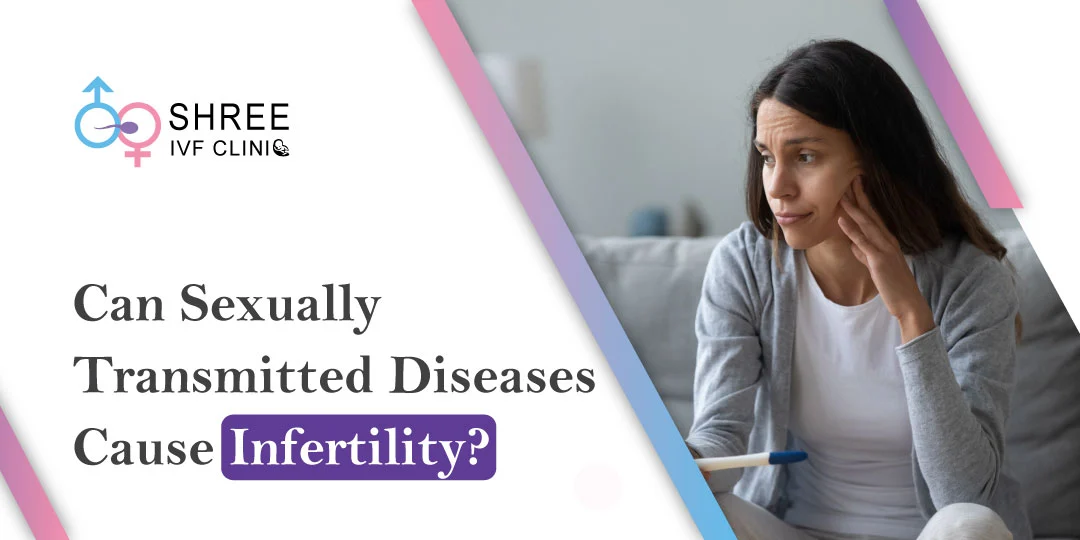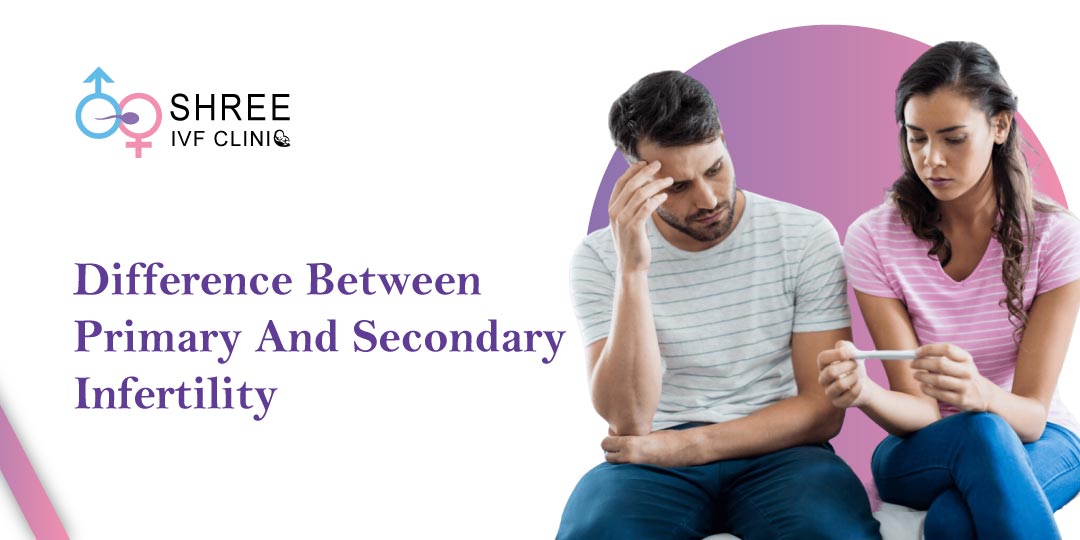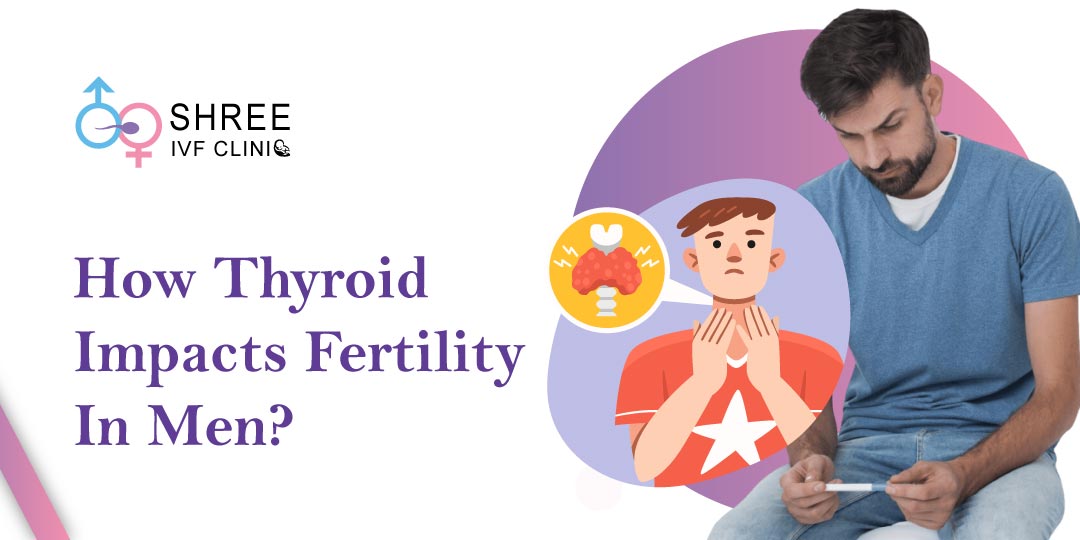Can Sexually Transmitted Diseases Cause Infertility?
UPDATED ON 7 FEB. 2023
If you’ve ever been worried about something being wrong with your reproductive health, chances are you’ve asked yourself if sexually transmitted diseases (STDs) can cause infertility.
As an experienced specialist in infertility who has spent years helping couples struggling to conceive, I know how common it is for STDs to lead to fertility issues.

AUTHOR
Dr Jay Mehta
Scientific Director & IVF Specialist with 10+ years of experience
TREATMENT
CONDITION
GET IN TOUCH ON
Continued…
Unfortunately, due to societal stigma and lack of education about STDs, many people don’t realize the potential threat they pose when it comes to achieving a healthy pregnancy.
In this blog post, You will know how certain sexually transmitted infections can interfere with fertility and provide resources so that everyone can learn more about protecting their reproductive health from any potential risks associated with unprotected sex.
Can STD Ruin Your Chances of Getting Pregnant?
Yes, it is possible for STDs to lead to infertility.
In fact, according to the Centers for Disease Control and Prevention (CDC), sexually transmitted infections are one of the most common causes of infertility in both men and women.
The most common STD that can cause fertility problems is chlamydia, which affects more than 3 million people every year around the world. Chlamydia is caused by a bacterium called Chlamydia trachomatis, which can be spread through sexual contact with an infected person.
In women, if not treated promptly and correctly, this infection can cause serious damage to a woman’s reproductive organs, including her fallopian tubes, leading to blocked or damaged tubes that can interfere with pregnancy.
In men, chlamydia can cause inflammation in the testicles or epididymis that can affect sperm production, leading to infertility.
In addition to chlamydia, other common STDs such as gonorrhoea and syphilis have also been linked to fertility issues in both men and women.
While these infections are treatable with antibiotics, if left untreated they can lead to permanent damage to the reproductive organs, making natural conception impossible.
Also Read : Male Infertility Tests and Diagnosis
How Long Can You Have an STD Before Becoming Infertile?
It is important to note that there is no set amount of time that it takes for an STD to cause infertility.
In some cases, fertility can be affected after a single unprotected sexual encounter, while in others the damage may not become apparent until months or even years later.
As such, it’s essential to practice safe sex and get tested regularly to reduce the risk of developing any type of STD.
Fortunately, many STD’s are treatable with antibiotics if they’re caught early enough.
Therefore, I strongly recommend getting tested whenever you experience any symptoms or if you think you’re at risk due to recent unprotected sexual activity.
The sooner an infection is detected and treated, the better your chances of preserving your reproductive health and achieving a healthy pregnancy.
What to do if One Has an STD And Wants to Get Pregnant?
If you have an STD and are trying to conceive, it is important to talk to your doctor as soon as possible.
Your doctor will be able to provide a treatment plan tailored specifically for you that can help reduce the risk of infertility.
In cases where the infection has caused damage to reproductive organs, there are still options available, such as assisted reproductive technologies (ART), which can help individuals or couples affected by STDs achieve their goal of having a baby.

4,790+
379K+
” Every individual and couple’s journey is unique, and
finding the right solutions tailored to their specific
circumstances can make all the difference “
How to Protect Yourself from STD?
The best way to protect yourself from the risk of STDs and their associated infertility risks is by practicing safe sex using condoms and avoiding unprotected sex with multiple partners.
It’s also important to get tested regularly for STDs so that any infection can be treated promptly before it causes irreversible damage.
Additionally, I recommend educating yourself on the topic of STDs and how they can affect fertility. This knowledge can help you make informed decisions regarding your reproductive health and reduce your chances of developing any type of STD in the future.
At the end of the day, it’s important to remember that STDs do not need to stop you from achieving your dream of becoming a parent. With proper medical care and guidance from experienced professionals, it is possible for those affected by STDs to successfully conceive a healthy baby.
I hope this post has given you a better understanding of how STDs can affect fertility and what steps you can take to protect your reproductive health.
Remember, if you have any questions or concerns, don’t hesitate to reach out to your doctor for help and advice. Good luck!
AUTHOR
Dr Jay Mehta
Scientific Director & IVF Specialist with 10+ years of experience
CONDITION
CALL US 24/7 FOR ANY HELP
GET IN TOUCH ON
Share Article on
Recommended Reading
How Long Can Sperm Live Inside the Female Body?
Sperm live inside the female body depends on a certain number of factors. sperm can survive inside female partner’s body is 5 days.
Difference between Primary & Secondary Infertility
In this blog, we’ll understand the difference between Primary & Secondary Infertility.
Understanding How Thyroid Affects Male Fertility
We’ll be discussing the effects of hypothyroidism (underactive) as well as hyperthyroidism (overactive).




